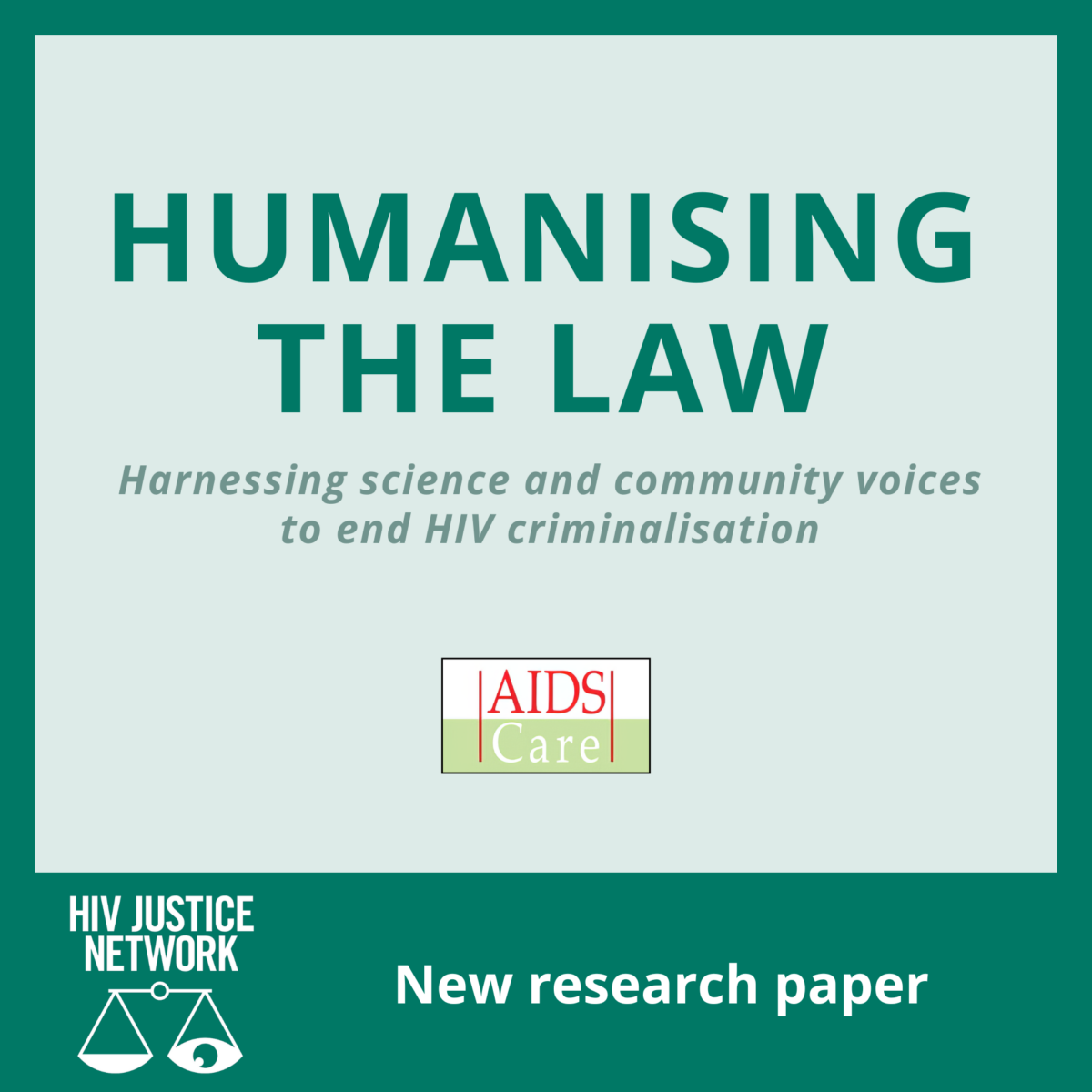
This week, the international peer-reviewed journal, AIDS Care, published online a research paper that examines how two decades of scientific progress, community advocacy, and storytelling have come together to influence laws, policies, and public understanding of HIV in the context of the criminal law.
In Humanising the law: harnessing science and community voices to end HIV criminalisation, I trace nearly twenty years of work to challenge HIV criminalisation, drawing on my own involvement and on the collective efforts of so many others in the HIV justice movement.
Some of the key points include:
-
Science as evidence for change. The consensus that people on effective treatment cannot transmit HIV, and the 2018 Expert Consensus Statement, have reshaped legal reasoning and prevented unjust prosecutions.
-
Stories bring the impact to life. The ordeals of people such as Ugandan nurse Rosemary Namubiru and the real Malawian woman at the centre of our short film, Mwayi’s Story, highlight the human cost of HIV criminalisation and the resilience of those most affected.
-
Legal reforms are possible. Since the HIV JUSTICE WORLDWIDE coalition was created in 2016, over a dozen countries and jurisdictions around the world have repealed or modernised their HIV criminalisation laws.
But I also make it clear that much remains to be done. HIV criminalisation continues to undermine public health and human rights, particularly in environments shaped by authoritarianism, disinformation, and broader crackdowns on sexuality, gender, migration, sex work, and drug use.
That is why I argue for a paradigm shift – a humanisation of the law that centres lived experiences, affirms dignity, and ensures legal systems reflect science and rights rather than fear and prejudice. Achieving this requires:
-
Ongoing investment in legal reform, advocacy, and community-led monitoring.
-
Stronger cross-movement solidarity with those facing overlapping forms of criminalisation.
-
Sustained funding to support the global HIV justice movement for the long term.
As I conclude in the article: ending HIV criminalisation is not only about changing laws, but also about changing cultures. It is about recognising that our lives, our rights, and our voices matter.
A limited number of free eprints of this article are available from this link.